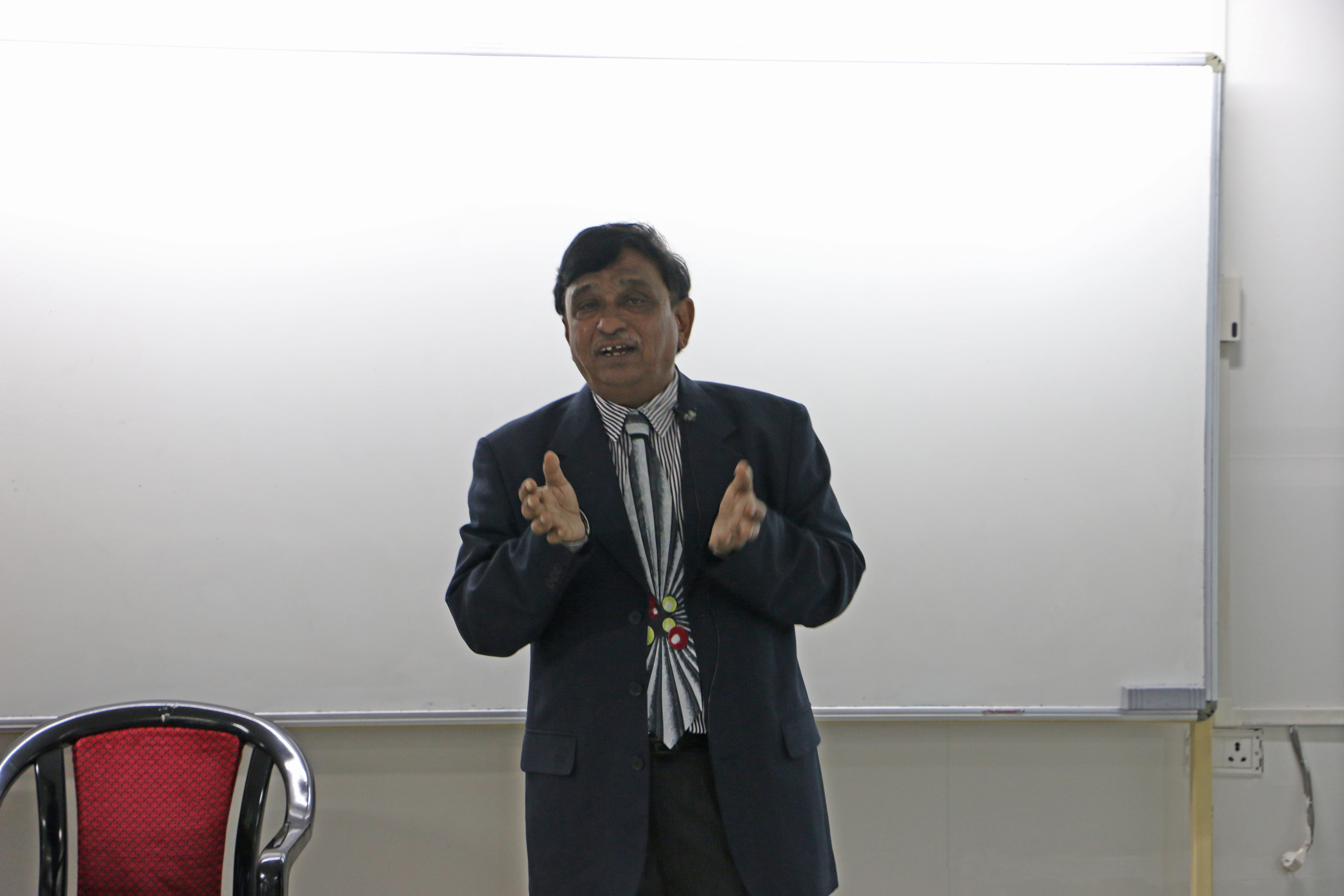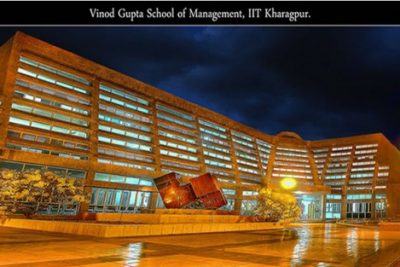On 7
th August 2014,
Vinod Gupta School of Management, IIT Kharagpur, welcomed
Mr. Shyamsunder Panchavati,
Member Advisory Council at
Harvard Business Review to enlighten the students about Creating Sustainable Business Models.
Mr Panchavati earned his B.Sc degree from Nagpur University. Post that he has also done courses from Harvard University and IESE Business School. He was the Chief Administrative Officer of Lead India 2020 Foundation. He is currently the Member of the Harvard Business Review Advisory Council, Member Online Executive Panel of Experts and a featured author at WikiHow and has published 23 articles and helped improve over 400 articles.

Mr. Panchavati started his lecture by interacting with the class on the basic question of what an idea is. He then moved on to the factors which make an idea marketable and finally directed the discussion to what a Business Model is. He stressed on the fact that Business Model is required for any company, be it a start-up or an existing corporate. He also pointed out that companies keep changing their business model to keep pace with time and stay ahead in the competition.
Talking about innovation leading to successful business model, Mr. Panchavati discussed what really opened the doors of India to the western world. He gave examples of Ajay Bhat, creator of USB, Intel, Vinod Dham, creator of Pentium chip, Intel, Vinod Khosla, cofounder of Sun Systems and creator of Java, etc to stress on the fact that innovations like these actually helped India gain recognition and made it the country it is today. Continuing about Business Model innovation, he pointed out that there are six questions which need to be answered, viz, What customer need will the Business Model address, What novel activities could help satisfy the need, How can activities be linked in novel ways, Who should perform activities, What revenue models can be adopted to complement the business model and finally How will value be created for each stakeholder.
Taking the discussion further, Mr. Panchavati brought in the concept that any Business Model rests on nine fundamental blocks. They are Customer Segments, Value Proposition, Channels, Customer Relationships, Revenue System, Key Resources, Key Activities, Key Partners and finally Cost Structure. He pointed out that these nine block cover four areas, viz, Customer, Offer, Infrastructure and Financial Viability. He then discussed each of the nine blocks in detail explaining what each block is and how it fits into the overall Business Model.
Finally, he cleared some of the doubts that students had regarding Value proposition and Corporate Social Responsibilities. He pointed out the difference between Corporate Social Responsibility and using that to market your product and discussed some real industry examples to drive his point. This marked the end of, a very eventful session on Business Models organized by Vinod Gupta School of Management, IIT Kharagpur.



